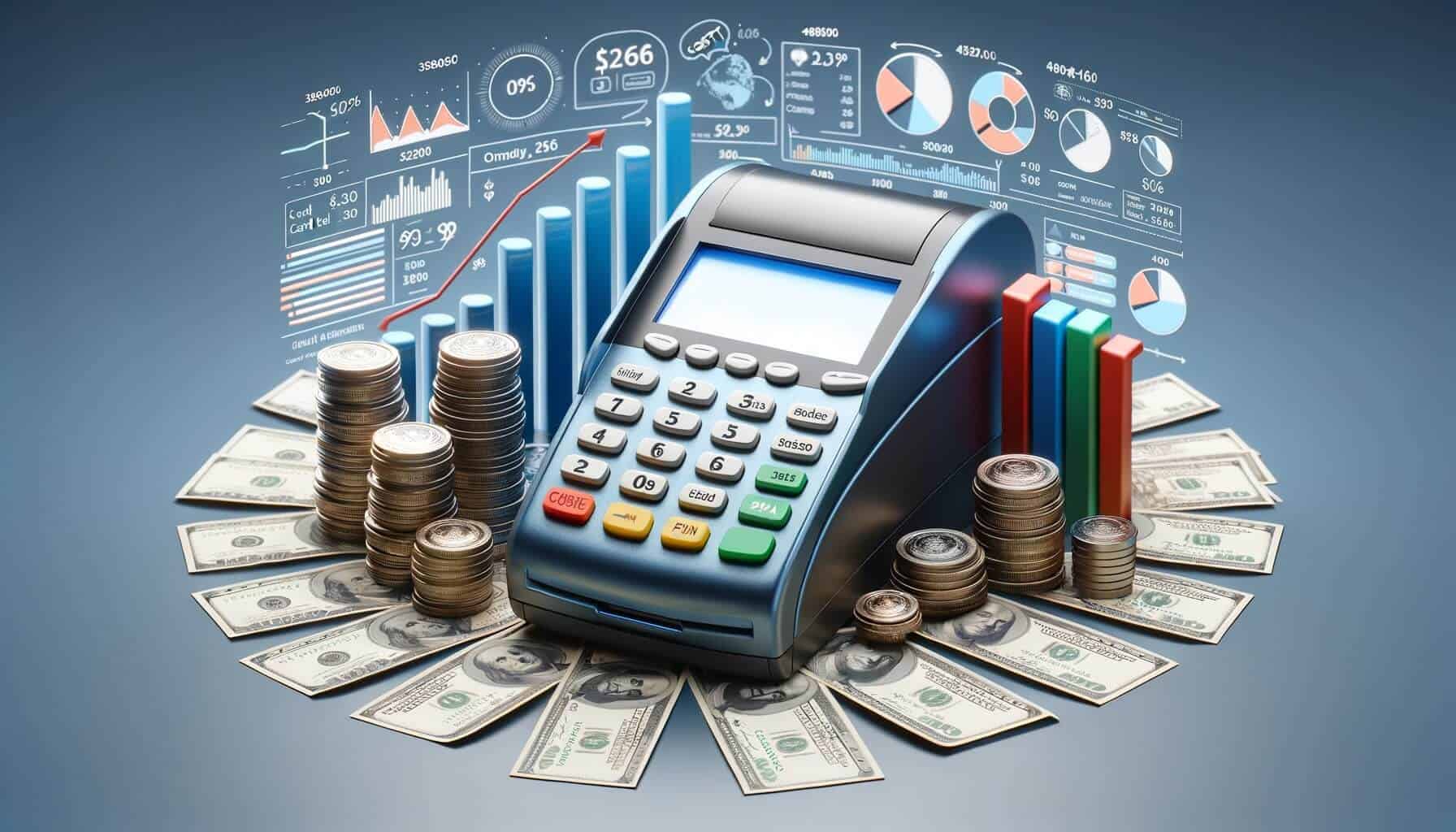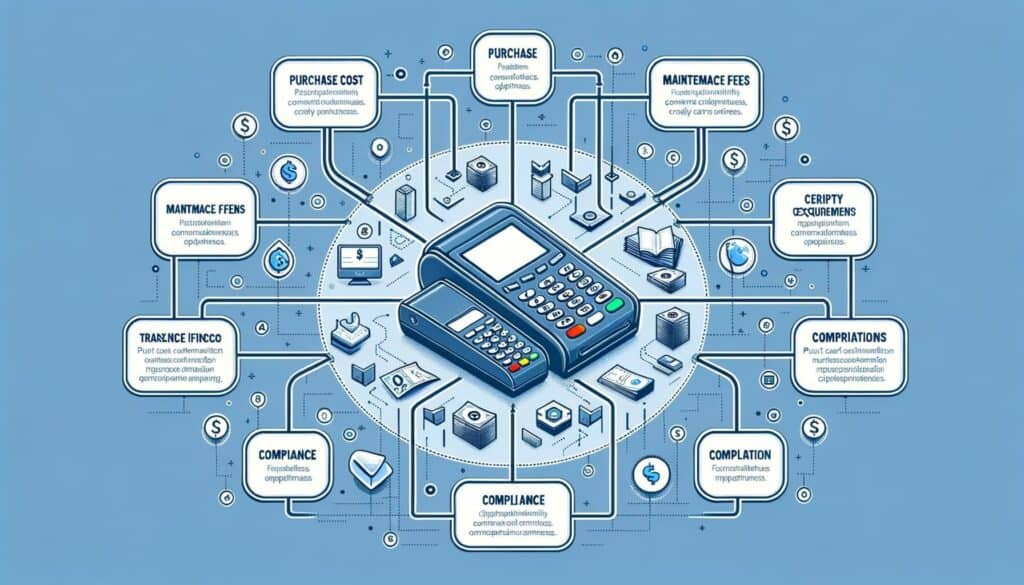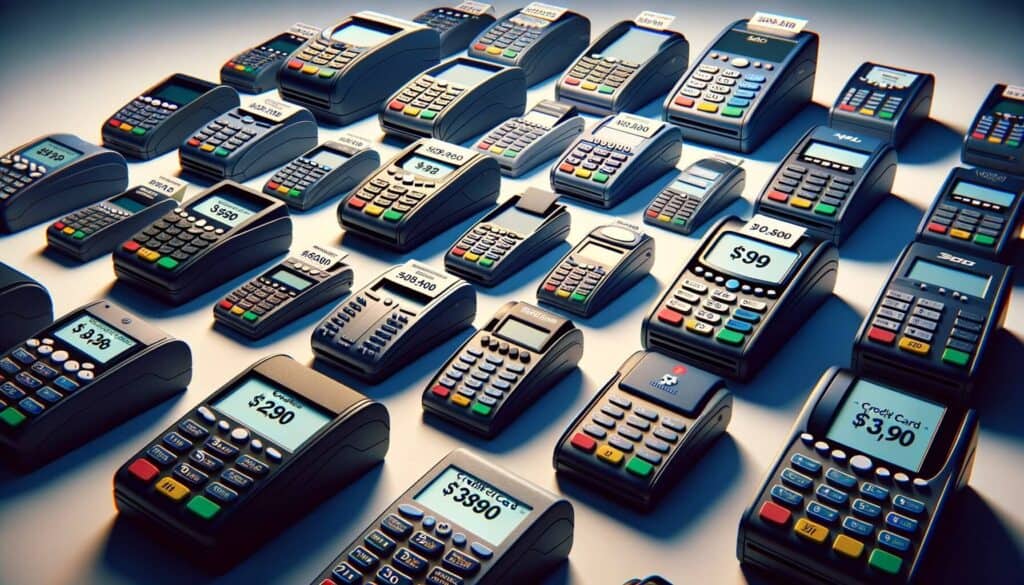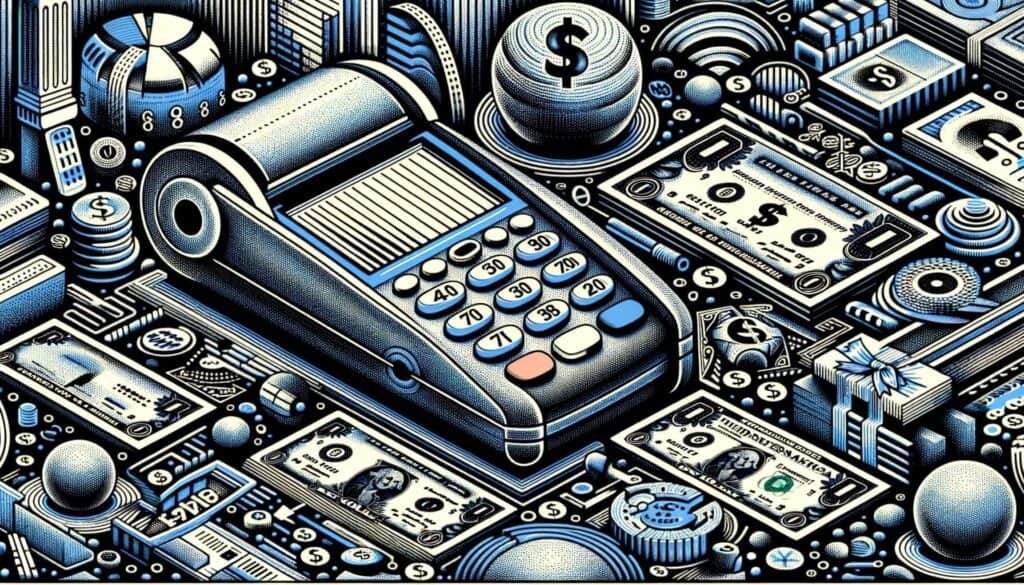
By Harriet Forster March 24, 2025
In today’s digital age, credit card machines have become an essential tool for businesses of all sizes. Whether you run a small retail store or a large restaurant, having a reliable and efficient credit card machine is crucial for accepting payments from customers. However, before diving into the costs associated with credit card machines, it is important to understand the basics of how they work.
A credit card machine, also known as a point of sale (POS) terminal, is a device that allows businesses to process credit and debit card payments. When a customer makes a purchase using their card, the credit card machine securely captures the cardholder’s information and verifies the transaction with the card issuer. Once the transaction is approved, the funds are transferred from the customer’s account to the merchant’s account.
Factors Affecting Credit Card Machine Costs

The cost of a credit card machine can vary significantly depending on several factors. Understanding these factors will help you make an informed decision when choosing the right credit card machine for your business. Here are some key factors that can affect the cost of credit card machines:
1. Type of Credit Card Machine: There are different types of credit card machines available in the market, including traditional credit card machines, mobile credit card machines, virtual credit card machines, and point of sale (POS) systems. Each type has its own features and functionalities, which can impact the cost.
2. Features and Functionality: The features and functionality of a credit card machine can vary greatly. Some machines offer basic payment processing capabilities, while others come with advanced features such as inventory management, customer relationship management (CRM) integration, and analytics. The more features a credit card machine has, the higher its cost is likely to be.
3. Connectivity Options: Credit card machines can be connected to the payment network using different methods, such as dial-up, Ethernet, or wireless. The type of connectivity option you choose can affect the cost of the machine. For example, wireless credit card machines that use cellular networks for connectivity tend to be more expensive than those that use traditional dial-up connections.
4. Brand and Manufacturer: The brand and manufacturer of a credit card machine can also impact its cost. Well-known brands with a reputation for quality and reliability often charge a premium for their products. However, it is important to note that higher cost does not always guarantee better performance, so it is essential to research and compare different brands before making a purchase.
Different Types of Credit Card Machines and Their Costs

Now that we have a basic understanding of credit card machines and the factors that can affect their costs, let’s explore the different types of credit card machines available in the market and their associated costs.
1. Traditional Credit Card Machines: Cost Breakdown and Features

Traditional credit card machines, also known as countertop terminals, are the most common type of credit card machines used by businesses. These machines are typically connected to the payment network using a phone line or Ethernet connection. They come with a keypad for entering payment information and a built-in printer for printing receipts.
The cost of a traditional credit card machine can range from $100 to $500, depending on the brand, features, and connectivity options. Some machines may require additional accessories, such as PIN pads or contactless payment readers, which can add to the overall cost.
2. Mobile Credit Card Machines: Cost Breakdown and Features
Mobile credit card machines, also known as wireless terminals, are designed for businesses that require flexibility and mobility. These machines use wireless connectivity, such as cellular networks or Wi-Fi, to process payments. They are portable and can be used anywhere within the range of the wireless network.
The cost of a mobile credit card machine can range from $200 to $800, depending on the brand, features, and connectivity options. Some machines may also require a monthly subscription fee for wireless connectivity, which should be taken into account when considering the overall cost.
3. Virtual Credit Card Machines: Cost Breakdown and Features
Virtual credit card machines, also known as online payment gateways, are software-based solutions that allow businesses to accept credit card payments online. These solutions are typically integrated into the business’s website or e-commerce platform, enabling customers to make secure online payments.
The cost of a virtual credit card machine can vary depending on the provider and the features included. Some providers charge a monthly subscription fee, while others may charge a transaction fee or a percentage of each transaction. On average, the cost of a virtual credit card machine can range from $20 to $100 per month, depending on the volume of transactions and additional features required.
4. Point of Sale (POS) Systems: Cost Breakdown and Features
Point of Sale (POS) systems are comprehensive solutions that combine hardware, software, and payment processing capabilities into a single package. These systems offer advanced features such as inventory management, employee management, and reporting, in addition to payment processing.
The cost of a POS system can vary significantly depending on the brand, features, and the number of terminals required. A basic POS system for a small business can cost anywhere from $1,000 to $3,000, while a more advanced system for a larger business can cost upwards of $10,000. It is important to consider the ongoing costs, such as software updates and technical support, when evaluating the overall cost of a POS system.
Additional Costs Associated with Credit Card Machines
In addition to the upfront cost of purchasing a credit card machine, there are several other costs that businesses should be aware of. These costs can vary depending on the type of credit card machine and the payment processor chosen. Here are some common additional costs associated with credit card machines:
1. Payment Processing Fees: Payment processors charge fees for each transaction processed through their network. These fees can vary depending on factors such as the type of card used (debit or credit), the transaction volume, and the payment processor’s pricing structure. It is important to compare different payment processors and their fee structures to find the most cost-effective option for your business.
2. Monthly Service Fees: Some credit card machine providers charge a monthly service fee for using their equipment and services. This fee can cover maintenance, technical support, and software updates. The monthly service fee can range from $10 to $50, depending on the provider and the type of credit card machine.
3. Equipment Leasing: Instead of purchasing a credit card machine outright, some businesses choose to lease the equipment. Equipment leasing can be a cost-effective option for businesses with limited upfront capital. However, it is important to carefully review the terms and conditions of the lease agreement, as leasing can sometimes be more expensive in the long run compared to purchasing the equipment.
4. PCI Compliance Fees: Payment Card Industry (PCI) compliance is a set of security standards that businesses must adhere to when processing credit card payments. Some credit card machine providers charge a fee for ensuring PCI compliance and providing security features such as encryption and tokenization. The PCI compliance fee can range from $50 to $200 per year, depending on the provider and the level of security required.
Frequently Asked Questions (FAQs)
Q1. How much does a credit card machine cost?
Answer: The cost of a credit card machine can vary depending on factors such as the type of machine, features, connectivity options, and brand. Traditional credit card machines can cost between $100 and $500, while mobile credit card machines can range from $200 to $800. Virtual credit card machines typically have a monthly subscription fee ranging from $20 to $100, and POS systems can cost anywhere from $1,000 to $10,000 or more.
Q2. Are there any ongoing costs associated with credit card machines?
Answer: Yes, there are several ongoing costs associated with credit card machines. These costs can include payment processing fees, monthly service fees, equipment leasing fees, and PCI compliance fees. It is important to consider these costs when evaluating the overall cost of a credit card machine.
Q3. Can I lease a credit card machine instead of purchasing it?
Answer: Yes, many credit card machine providers offer equipment leasing options. Leasing can be a cost-effective option for businesses with limited upfront capital. However, it is important to carefully review the terms and conditions of the lease agreement, as leasing can sometimes be more expensive in the long run compared to purchasing the equipment.
Q4. How do I choose the right credit card machine for my business?
Answer: When choosing a credit card machine for your business, it is important to consider factors such as the type of machine, features, connectivity options, and brand. Assess your business’s specific needs and budget, and compare different options to find the best fit. It is also recommended to read reviews and seek recommendations from other business owners in your industry.
Conclusion
Credit card machines are an essential tool for businesses of all sizes, enabling them to accept payments from customers conveniently and securely. The cost of a credit card machine can vary depending on factors such as the type of machine, features, connectivity options, and brand. Traditional credit card machines, mobile credit card machines, virtual credit card machines, and POS systems all have different costs associated with them.
In addition to the upfront cost of purchasing a credit card machine, businesses should also consider other costs such as payment processing fees, monthly service fees, equipment leasing fees, and PCI compliance fees. It is important to carefully evaluate these costs and compare different options to find the most cost-effective solution for your business.
By understanding the basics of credit card machines and the factors that can affect their costs, businesses can make informed decisions and choose the right credit card machine that meets their specific needs and budget. Investing in a reliable and efficient credit card machine is crucial for businesses to provide a seamless payment experience for their customers and drive growth in today’s digital economy.